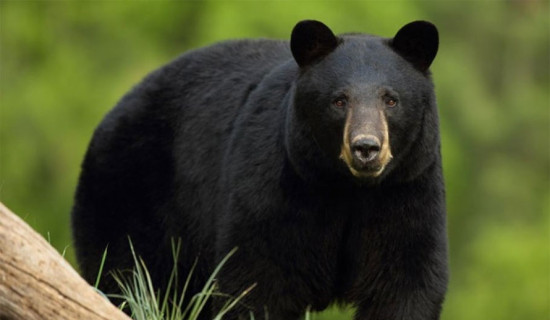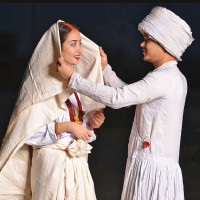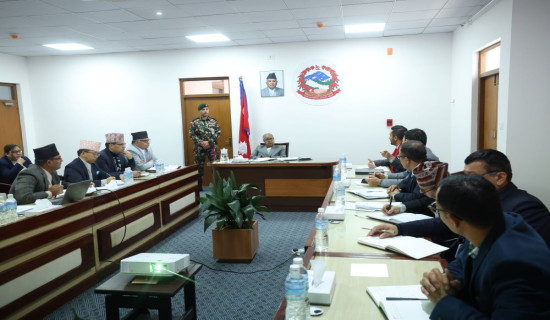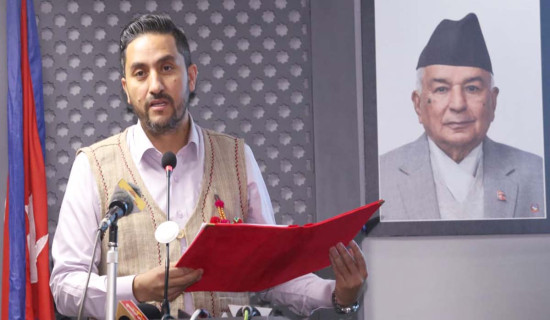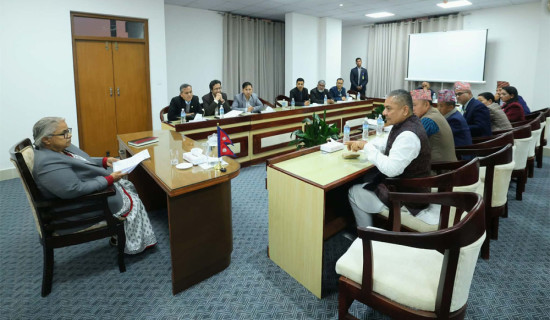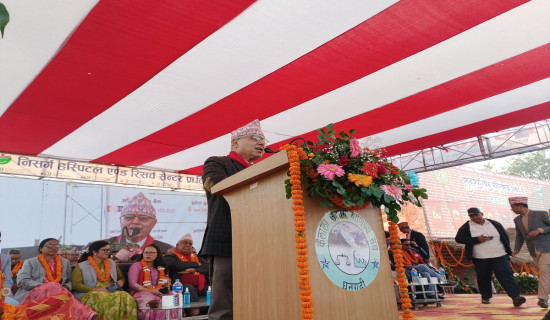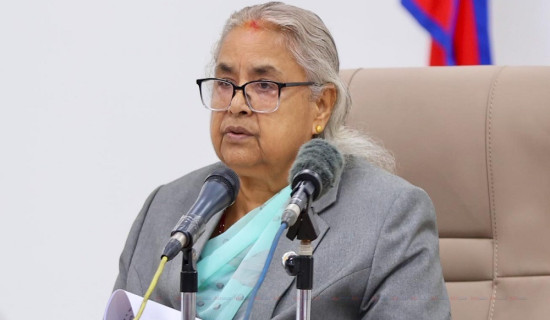- Tuesday, 9 December 2025
Hari Devi singing Teej songs over three decades
By Phadindra Adhikari
Lekhnatha, Aug. 6: Haritalika Teej is a unique, religious, and heartfelt festival for Nepali women. On the eve of Teej, women enjoy a feast known as dar, and the next day they observe a strict fast.
During this festival, Sangini (friends) songs and Teej songs are sung. These songs often reflect old legends, personal stories of sorrow, and struggles of life. Grandmothers, mothers, and granddaughters together sing these songs and dance.
As the dar once prepared and served by fathers and brothers at home has transformed into hotel feasts, Teej songs have also started to resemble light folk or ratyauli (playful wedding songs), drifting away from their traditional essence.
This year, Teej falls on August 26. With three weeks still to go, the music industry and social media are already buzzing with the Teej spirit.
New songs labelled as “Teej songs” are being released daily, though many of them fail to convey the true meaning of Teej. Haridevi Koirala, who has been consistently producing authentic Teej songs for over three and a half decades, is preparing to release four new songs this year.
Two of her songs ‘Uthau Jagera’ and ‘Bihe Gari Lyaau Ram’ have already been released, while ‘Kurauni Ko Perungo’ and ‘Hanchha Dhungaale’ will be released this week.
‘Uthau Jagera’ is a call for women's empowerment, while ‘Bihe Gari Lyaau Ram’ is based on a traditional legend.
Kurauni Ko Perungo expresses the pain of a woman rendered homeless by the floodwaters of the Madi River, and Hanchha Dhungaale portrays the situation of couples who marry without family consent.
Haridevi herself is the trinity of lyrics, melody, and voice in most of her songs writing, composing, and singing them.
Haridevi first released her Teej song cassette titled ‘Haridevika Teej Geetharu’ in 1989, which featured six songs.
Since then, around 300 Teej songs by her have been recorded. She has become synonymous with authentic Nepali Teej songs.
However, she feels saddened by the recent changes in Teej music.
“Earlier, only women would sing these songs, and they were based on real-life events, filled with longing and pain. After 1989, songs of awareness started emerging,” she said. “But now the essence and reality of women's lives are being overshadowed. Men are singing, and songs have become like duets or ratyauli.”
She urges the younger generation to understand and preserve the essence of Teej songs.
“These are songs to be sung in front of parents and elders, not like ratyauli. Such songs have become a disgrace to our folk culture,” she added.
Having sung over 800 songs and published 13 literary works, Haridevi has voiced themes ranging from the ‘hamkailo’ of the ‘Baise–Chaubise’ kingdoms to those of women’s empowerment. She firmly believes that authentic folk songs and music represent the identity of Nepali people.
Folklorist Dr. Tulsi Prabhaas adds that songs sung and danced to by men cannot be called Teej songs, but should rather be considered folk songs released during Teej. “Cultural songs should not be altered. Culture does not die, but distortions can appear and fade away. Teej songs are not meant for mere entertainment,” he added.






